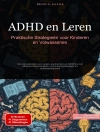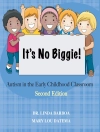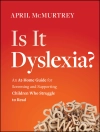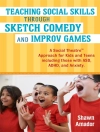This book explores contemporary perspectives and research on inclusion, providing a platform for discussing inclusion at an international level and its intersections with belonging and equity. How inclusion is defined and applied between schools, districts, and even countries can vary markedly; thus, an international understanding of inclusion is urgently needed. Experts from several countries in different regions present the latest research in the field of inclusion and provide practices and strategies guided by empirical research to address some of these issues.
Schools are contextual organisations that represent the broader society, culture, and values in which they reside. Thus, how inclusion is practised at the society level has an implication on schools. The way we think about inclusion has shifted dramatically in the last decade – we now recognise that inclusion represents a broad spectrum of racial, ethnic, cultural, and sexual diversity that is seen in almost all modern schools.
This book presents international perspectives and research on inclusion, belonging and equity to work towards a more consistent, collaborative, and global understanding.
قائمة المحتويات
1 Introduction.- 2 A review of Inclusive Education in Australia and Future Recommendations.- 3 Differences between Primary and Secondary Pre-Service Teachers’ Attitudes towards Inclusive Education.- 4 Young People with Serious Mental Health Problems: A Case for Inclusion.- 5 Inclusive Secondary Schooling: Challenges in Developing Effective Parent-Teacher Collaborations.- 6 Working with Families of Students with Disabilities in Primary Schools.- 7 Educational Psychology: A Critical Part of Inclusive Education.- 8 The Importance of Pre-Service Secondary Teachers’ Attitudes Towards Inclusive Education: The Positive Impact of Pre-Service Teacher Training.- 9 The Value of Flexible Options as Enablers in Inclusion.- 10 Preparing Practitioners for Inclusive Practice: The Challenge of Building Schema to Reduce Cognitive Load.- 11 Standing Out while Fitting In (SOFI): A Counternarrative on Black Males’ Strivings for Inclusiveness at a Predominantly Black High School.- 12 Inclusion: Theses and guidelines.- 13 What Norwegian individuals diagnosed with dyslexia, think and feel about the label dyslexia.- 14 The coordinated and collaborative work of the educational community in the inclusive response to students with rare diseases.- 15 Inclusive education to promote the mental health and well-being of youths in school.- 16 School inclusion for children with ADHD or Autism in Iran.- 17 Schools as places of inclusion for students who identify as LGBTQI.- 17 Conclusion.
عن المؤلف
Professor Christopher Boyle is a Professor in Inclusive Education and Educational Psychology in the School of Education at the University of Adelaide, Australia. He is a Fellow of the British Psychological Society and a Senior Fellow of the Higher Education Academy. He was previously Editor in Chief of The Educational and Developmental Psychologist (2012-2017) and is currently the co-inaugural founding editor of Belonging and Human Connection (with Kelly Allen) of the new journal Belonging and Human Connection launched in 2022 and published by Brill. He is an internationally recognised and respected academic and author on the subjects of inclusive education, and psychology. He is a registered psychologist in the UK and Australia
Dr Kelly-Ann Allen is nationally and internationally recognised as a belonging researcher and for her translation of this expertise within educational contexts. She is an endorsed Educational and Developmental Psychologist, a senior lecturer at Monash University and a Fellow of the Australian Psychological Society as well as the College of Educational and Developmental Psychologists. Dr Allen is also an honorary senior fellow of the Centre for Positive Psychology, Melbourne Graduate School of Education, the University of Melbourne. In 2020, Dr Allen was recognised by the Australian as one of Australia’s top performing Early Career Researcher.











